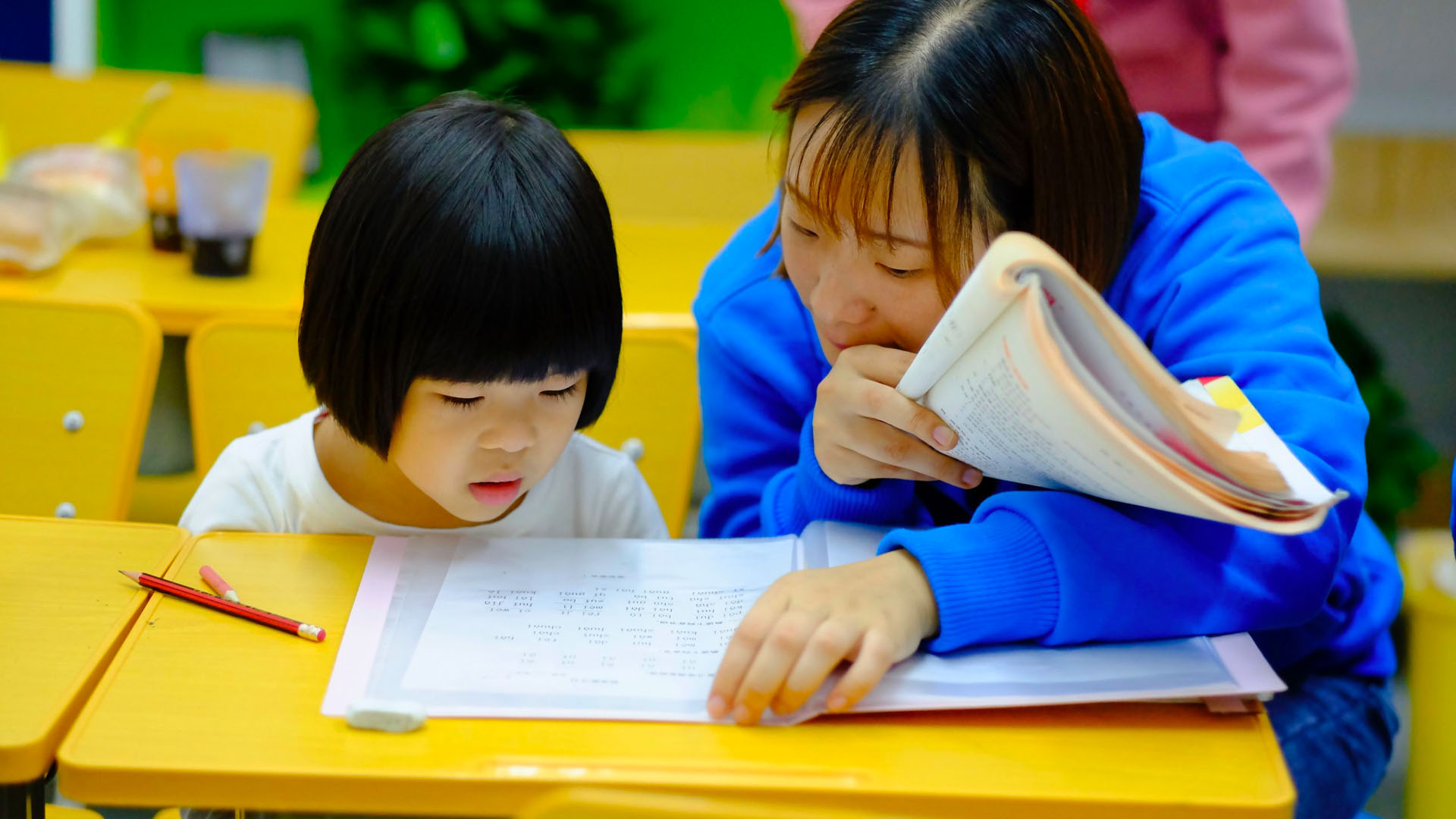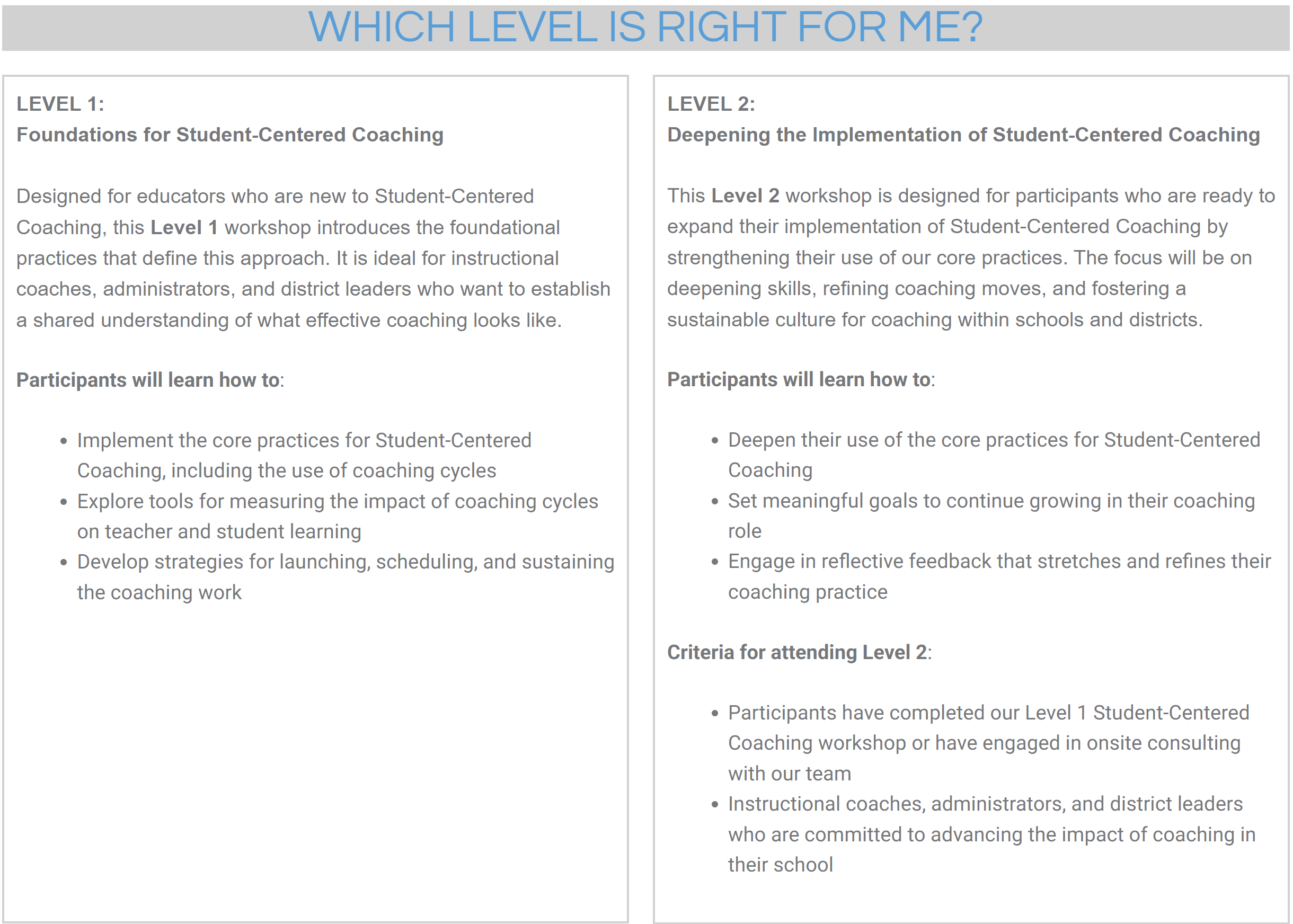When I rewind a few years…okay, multiple times of rewinding for several+ years, I think back to where MTSS (Multi-Tiered Systems of Supports) may have received its roots or foundations. Many educators who have been around for five to ten years may not be familiar with the acronym, MTSS, but I’m guessing if we were to use the acronym RtI, they would probably nod their heads to show that acronym sounds a bit more familiar to them.
I like to think that Response to Intervention (RtI) was the first initiative set by the education department which gave the foundations to MTSS. I can remember in our first experiences with MTSS as a Project Aware school, many of us used the informal definition of, “MTSS is like RtI on steroids.” In order to have a full understanding of MTSS, it is pretty necessary to have a good grasp on the basics of RtI.
I vividly remember learning about the RtI ‘general education initiative’ around 2006-2007 with other school corporations in our four-county region, alongside our special education cooperative. I soon after transitioned to another corporation closer to my home, so I was able to see the beginning stages of this initiative with two corporations. Although each corporation was unique to its style and way to implement this, there were several pieces which were similar.
A few years later, I was fortunate enough to learn from one of the best, Mike Mattos with Solution Tree. We spent two full days learning about the hows and whys associated with RtI. Response to Intervention had a main focus on academic interventions for those students who were not mastering standards/benchmarks after being instructed. We have all seen the famous triangle:
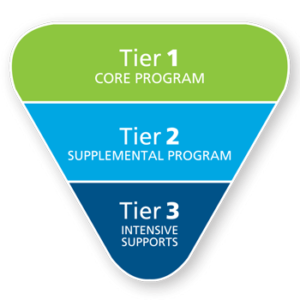
Why RtI at Work | Response to Intervention Strategies. (n.d.). www.solutiontree.com. https://www.solutiontree.com/rti-at-work/why-rti-at-work
Again, the original inverted triangle had a main focus on only academics and responding to academic related instruction. In fact, when I looked back at my notes from my 2012 Solution Tree experience, I was reminded of several important aspects of academic intervention. One of these aspects is the concept of a PLC (Professional Learning Community) and that entire community (group of staff) taking ownership of student learning and success. A section of my notes was essential ten years ago, and we still hold true to the following vital components:
- Response to Intervention = Response to Instruction
- ALL students CAN learn at high levels
- We claim ownership for ALL students – not just the ones in my class
- Intervention needs to be planned AND implemented by the kid by the standard
- If more than 15% of our students need intervention, then the skill needs to be addressed in core instruction. It’s not an intervention problem, it’s a core instruction problem.
“We claim ownership for ALL students – not just the ones in my class.”
Another vital aspect of RtI, and also now MTSS, is the importance of Collective Teams, PLCs. Mike Mattos (and Solution Tree) promoted the Four Key Elements/Questions. The following Twitter image was retweeted by Solution Tree, and gives PLCs guiding questions and ideas to ponder when reviewing academic success.
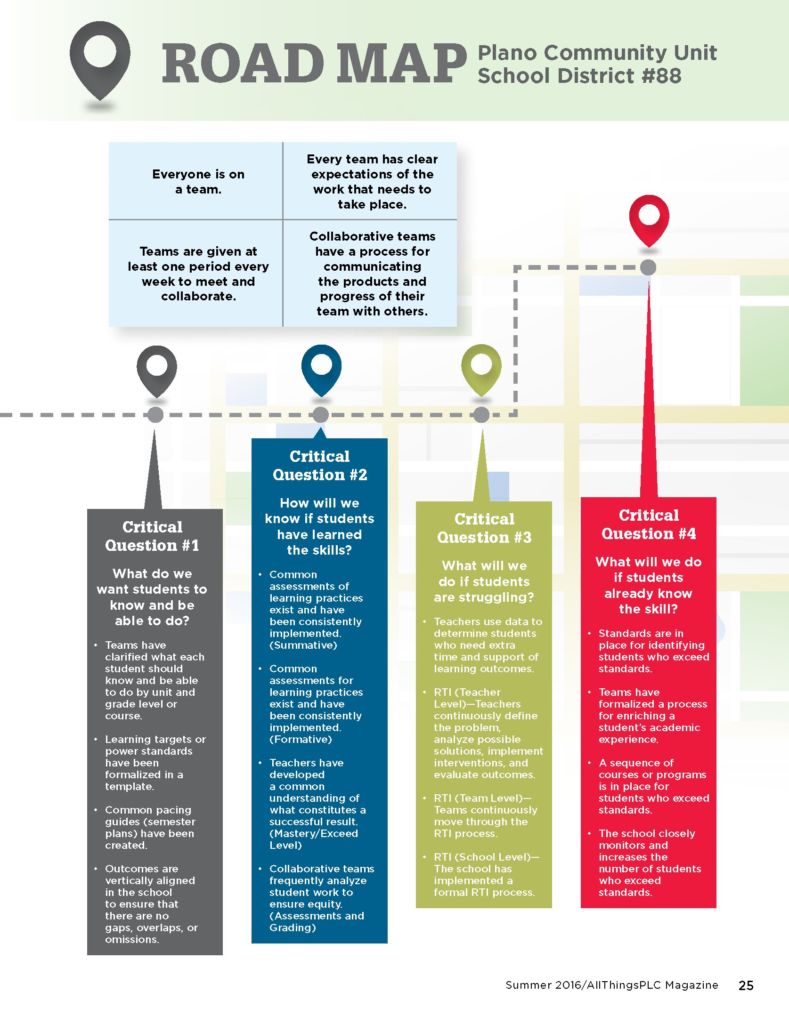
Image Source: Solution Tree. [@SolutionTree]. (2017, May 6). Sample PLC roadmap to answer the 4 Critical Questions! Source: http://bit.ly/2osNI3e #edchat #edleadership #eduleaders @PlanoCUSD88 [Tweet]. Twitter. https://twitter.com/solutiontree/status/860963695165411328
This first blog reviewed a few essential components of the Academic portion of MTSS. As stated earlier, MTSS is like RtI on steroids, so we will look into the other two categories in the next blog: Behavior and Social-Emotional. Until then, please take some time to evaluate what types of academic protocols and interventions are in place for your school, district, or corporation in all Tiers 1,2,3. You will find an example of what your MTSS document of supports could resemble below. It could be a starting place for those wanting to build a comprehensive document. Start with the academic portion, since so many of you are most likely familiar with RtI and its components.
May the systems of supports be with all of you!
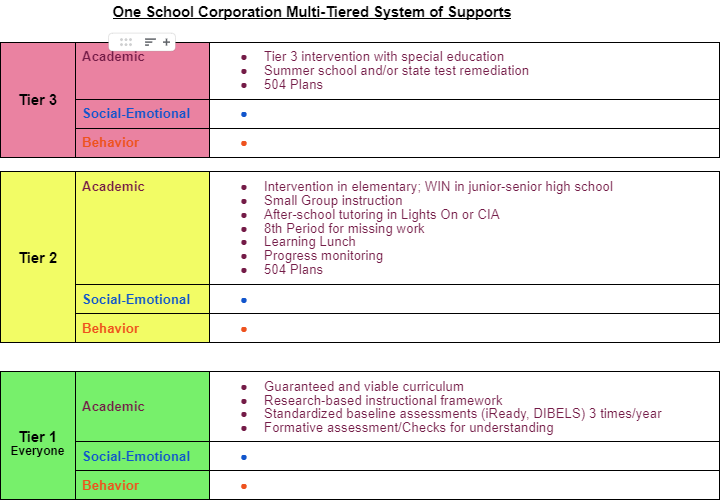
Courtesy of the Author
Resources
Please login or register to claim PGPs.
Alternatively, you may use the PGP Request Form if you prefer to not register an account.


